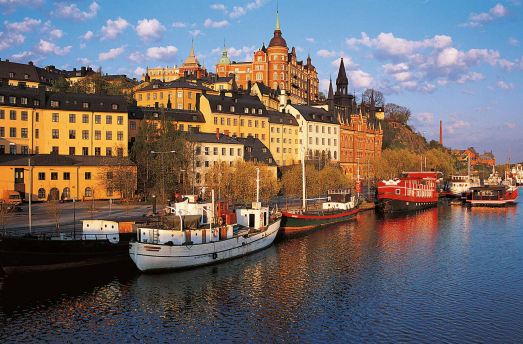Sweden: not such a paradise society
Sep 28, 2021Sweden: not such a paradise society
By Target Language Translation Services | Updated: 2021-9-28 11:00

World leaders gathered at UN Headquarters last week to commemorate the 20th anniversary of the adoption of the Durban Declaration and Programme of Action (DDPA), a comprehensive and visionary document that demonstrates the world's commitment to deal with racism in all forms.
Two decades after the landmark document was adopted, however,discrimination continues to "permeate institutions, social structures and everyday life in every society", the UN Secretary-General António Guterres said in the high-level meeting of the UN General Assembly. "Xenophobia, misogyny, hateful conspiracies, white supremacy and Neo-Nazi ideologies are spreading – amplified in echo chambers of hate", he added.
In this context, the meeting offered a renewed opportunity to mobilize our shared political will and move global anti-racism agenda forward, and should be welcomed and embraced by all parties.
Nevertheless, the Unites States and some other countries, mostly from the West, boycotted the meeting over "the event's history of antisemitism and anti-Israel bias". And Sweden was one of them.
Sweden's boycott showed doubt on its seriousness of battling racism and its international commitment to promote and protect human rights.
As some reflect, the beautiful nomadic country is actually not a paradise society as many imagine, especially for its indigenous people --the Sámi.
Sweden has a long history of racism that dates back many centuries. Historically, the Sámi are victim of Swedification policies, which began in the 1800s and lasted until the 1970. Considered as being inferior, less intelligent, and unable to survive in a civilized society, the Sámi were subject to abuses, violations and racism. They have lost their land, have had their religion, culture and language suppressed.
In 1922 Sweden became the first country in the world to establish a National Institute for Race Biology, headed by physician and psychiatrist Herman Lundborg. Lundborg promoted eugenics due to his obsession with the threat of racial mixing between Sámi, Finns and Swedes.
In mid 1930's, the Sámi were targeted by sterilization policy when the Swedish authorities actively Nazi Germany and its Ethnocentrism. The Sámi, together with homosexuals, people with mental disabilities, the homeless, were deemed as not suitable for having offspring, and suffered compulsory sterilization. Up to 63,000 people - 90% of them women - were sterilized with state approval to improve Swedish "racial purity" as part of a policy of "ethnic hygiene" until 1976.
Today, the estimated number of the Sámi on Swedish territory is only 20,000-40,000.
Although the Swedish government recognized the Sámi as an indigenous people, prejudice and unconscious racist perceptions have characterized Swedish Sámi policy over the years. Sweden has refused to ratify the ILO Convention concerning Indigenous and Tribal Peoples in Independent Countries. Sámi's autonomy is more of cultural and linguistic sense. Their territorial and land rights are poorly recognized. Their voices are marginalized in national political life. Their ethnic background incurs harassment and attacks at work and school.
Some Sámi have recently spoken out about the hate they have been a target of. "I have never experienced such hate and threats that exist now, never", the Sámi Jannie Staffansson said.
The Sámi's real experiences enable people to see the dark side of Sweden. When the online hate against the Sámi has escalated, or the reindeer owned by Sámi communities are found shot or run over, we cannot regard them as isolated incidents. They are a warning call, pointing to structural racism and systematic injustice in the country that still erode its ethnic minorities' fundamental human rights.
Twenty years after the DDPA was adopted, it is a shame that Sweden, out of diplomatic expediency and block politics, has refused to engage in deeper and honest global dialogue to deal with the pervasiveness of racial discrimination. Sweden's national branding as a "protector of human rights" rings hollow when it fails to tackle its racist past.
This article is reprinted from China Daily.
If there is a copyright, please inform us in time, we will delete it right the first time.